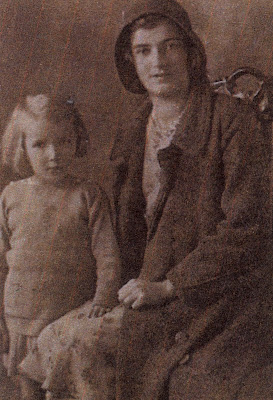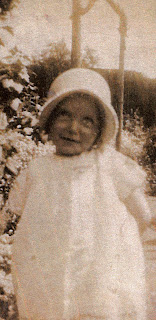Maybe it just needs a little love." --Linus from "A Charlie Brown Christmas"
Erik,
I wrote this story in early November, 2009. Enjoy.Mom
"I'm not dreaming of a white Christmas this year. We're going to have a white Thanksgiving. However, I am dreaming of a Christmas tree--a pre-lit, faux tree. In the catalog it says
". . . just fluff the branches, add ornaments, plug in and voila!" My kind of tree!"
In 1959, I came to America with my family aboard the Queen Elizabeth. Mam packed a small, artificial Christmas tree. A central wooden dowel sat in a hole in a square base. It was 3 feet tall with branches that pulled out and down to form the shape of a tree. It came with light bulbs, each with a shade like an inverted Dixie cup. A nursery rhyme and character were painted on each shade.
In the early 60's, we bought a 5 ft. silvery tinsel tree. It had a silver painted "trunk" with holes drilled in it at increasing angles, so that when each of the branches of the same size was inserted into the holes, they would perch upwards, forming a tree shape. My brother, Darryl, was born during the era of the silvery tinsel tree. Maybe that's why he loves tinsel so much.
In the 70's we had a 6-foot artificial evergreen tree. It looked real, but didn't smell real. We three kids could assemble it, no parent help needed. Dad always put those big, cone shaped, multi-colored lights bubs all over the tree. Maureen and I begged for fairy lights. Darryl just wanted to lob tinsel at the tree, big clumps that would drip from random branches.
I swore some day that I would have a real tree, a tree I cut myself at a tree farm. And I did have that real tree, year after year after year. But I was always the one who cut the tree, stuffed it into the too-small trunk or tied it on the roof of my car, forced the trunk into a too small tree stand, dragged in all into the house, attached lights and ornaments, and vacuumed endless pine needles. Each January I took it down, packed all the ornaments and lights away, dragged the tree back out into the yard, and cut it into 3 pieces for easy garbage pick-up. Every year the tree I bought was still real but a little bit shorter, with fewer lights and ornaments and eventually came from the local Target instead of the local tree farm.
The year I'm ordering, from a catalog, a prelit faux tree with balsam fragrance. The sections of the tree are hinged and pop into place--just fluff the branches, add ornaments, plug in and enjoy. My kind of tree!
 |
| The 1960's silvery tinsel tree |














